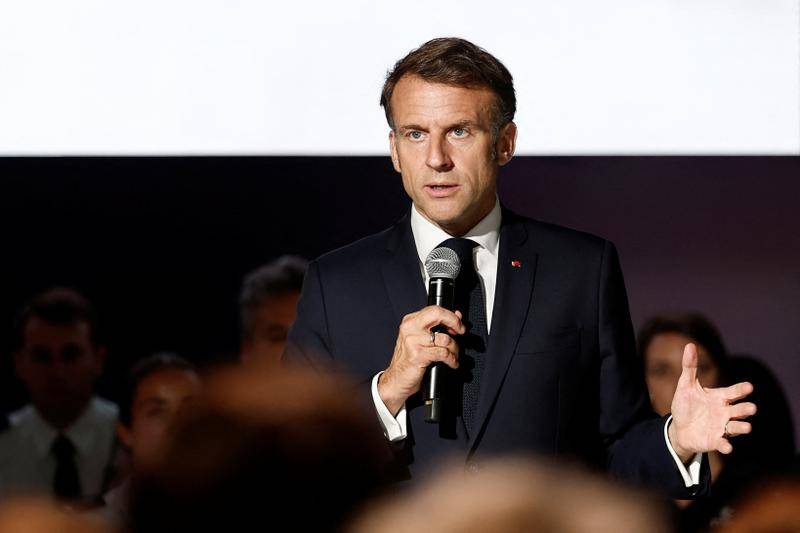Europe to Intensify Talks With Iran Amid Israel-Iran Escalation
As the Iran–Israel conflict escalates into its second week, France’s President Emmanuel Macron has signalled a major push by Europe to intensify diplomatic engagement with Iran. His aim: to forestall further violence, curb Tehran’s nuclear ambitions, and potentially unlock a path toward broader regional de-escalation.
Israel has stepped up aerial strikes on Iranian nuclear and missile facilities—including a major assault on the Isfahan nuclear complex—claiming it disrupted centrifuge production and eliminated senior IRGC commanders .
Iran, in turn, launched missiles and drone attacks at Israel, including a barrage over Haifa. Damage has been limited, but civilian infrastructure, such as Haifa’s historic Al Jarina Grand Mosque, sustained significant harm .
Casualties and disruptions mount: Iran claims more than 400 killed and 3,000 wounded; both countries face rising civilizational and infrastructural risks . Tanker shipping has been impacted, with Maersk suspending Haifa shipments .
Third‑party involvement remains a concern. Iran warned U.S. intervention would be “very dangerous for everyoneâ€; President Trump has said he would decide on military action within two weeks .
Macron’s Diplomatic Drive: From Initiative to Action
In response to deepening hostilities, Macron has activated a multi-pronged diplomatic initiative:
1. Launch of European initiative: On June 18, Macron instructed Foreign Minister Jean‑Noël Barrot to coordinate with British and German counterparts on a “demanding negotiated settlement†to halt the Iran–Israel conflict .
2. Geneva talks with Iran: On June 20, high-level European delegations (France, UK, Germany, plus EU foreign ministers) met Iranian FM Abbas Araghchi in Geneva—the first direct exchanges since the conflict began .
3. Macron’s public appeal: Following a phone call with Iran’s President Masoud Pezeshkian, Macron tweeted that Europe would “accelerate the negotiations led by France and its European partners with Iranâ€, while urging Tehran to provide "full guarantees that its intentions are peaceful" .
4. Core demands: Macron reiterated that “Iran must never acquire nuclear weapons,†must guarantee transparency, and should release French nationals Cécile Kohler and Jacques Paris, detained since May 2022 .
5. Expanded European blueprint: A detailed European proposal was publicly outlined ahead of the Geneva talks, calling for Iran to halt uranium enrichment, limit its missile programme, cease funding proxies, and agree to enhanced nuclear oversight—possibly via an international consortium .
Despite Europe’s overtures, Iranian officials remain cautious:
FM Araghchi emphasized that talks would only resume if Israel ceases its bombardment, adding that diplomacy with the U.S. is off the table while hostilities continue .
Tehran insists its nuclear efforts are peaceful and demands a halt to Western strikes before returning to negotiations .
1. Nuclear hazard: The UN’s nuclear watchdog and several Gulf states have warned that strikes on Iranian nuclear infrastructure—like Bushehr or Fordow—could provoke catastrophic radioactive release .
2. Humanitarian crisis: Civilians on both sides suffer casualties and disruption. Gaza’s situation continues to deteriorate in parallel, and global evacuations are underway—from Israelis in conflict zones to foreign nationals in Iran .
3. Global diplomacy: Major actors like the UN, IAEA, Turkey, UAE, Russia, China, and Islamic nations have all called for restraint and restraint, with routes to peace sought diplomatically .
4. U.S.–EU split: While Trump contemplates military options, European leaders offer diplomatic solutions. Trump has downplayed Europe’s role, claiming Iran prefers dealing with the U.S.—though Macron counters that Europe remains instrumental .
Diplomatic velocity: Europe intends to intensify talks. The question: will Iran respond to soften its position, or demand a ceasefire first?
U.S. decision window: Trump has set a two-week horizon for a U.S. action decision—timing that now overlaps with Europe’s diplomatic momentum .
Ceasefire vs escalation: Europe favors multilateral diplomacy to prevent further military escalation or a U.S.–Iran clash. The U.S. leans toward a more assertive posture.
Nuclear diplomacy redux: Talks may hinge on re-establishing a technical framework for nuclear oversight, including restrictions on enrichment in exchange for sanctions relief or security guarantees.
Proxy dynamics: Containment hinges not only on direct Iran–Israel dialogue but also on reducing proxy warfare via Hezbollah, Hamas, and other militias that may amplify hostilities.
Macron’s diplomacy represents Europe’s most concerted effort yet to mediate amid growing military confrontation. It’s Europe's bid to revive nuclear discourse without forfeiting leverage on Iran’s regional conduct.
Iran remains wary, conditioned on Israeli military action. Until that stops, Europe’s initiative may face a standstill.
A tense countdown: Europe pushing for breakthroughs as U.S. military timelines approach. The next fortnight could determine whether diplomacy prevails or if confrontation accelerates.



No comments yet
Be the first to share your thoughts!